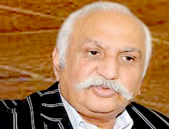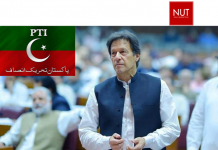n the two states tug of war the Kashmiris bleed
States are heartless creatures. The ruling establishments claim that their policies are to serve the people but more often in practice these are hollow claims. People’s benefit is only the byproduct of some of the policies of the states ruling classes. Many a time’s right things happen for wrong reasons. And people are crucified on the altar of narrow nationalism. Ego and territory matters more than humanity.
This point is amply proved by the trajectory of Pakistan- India conflict over Kashmir which has brought nothing else but misery for the people of Kashmir in particular and in the people of both countries in general. Perhaps, had it been only the Kashmiris struggle for an independent secular democratic country or the struggle for maximum autonomy within the framework of India over the last 70 years, there were more chances of success. It would have also gotten more international support which it did not because at present the world sees it as a conflict between the two countries.
Obstinate stand of India on Kashmir for the last 70 years has not resolved the issue. The worst sufferers of this conflict are the people of Kashmir who are torn to shreds in between the two revisionist states. There have been many uprisings of Kashmiris in India and all have been suppressed by the state by using brute power against the people. Human rights violations in Kashmir are indeed a stigma on the world’s largest secular democracy record. Every time there’s an uprising India blames Pakistan for instigating it. Pakistan which is condemning India for human rights violations internationally doesn’t help. It has also not an enviable human rights record in Balochistan, Sindh, KP and FATA.
On the other hand Pakistan has shown some flexibility on a few occasions on the Kashmir issue. From its traditional stand that the Kashmir issue should be resolved in the light of the 1948 UN resolution, it agreed to resolve the issue through bilateral negotiations in 1972 under the Simla agreement. The subtle change in the nomenclatures of the disputed border between the two countries in Kashmir was made — from calling it the ceasefire line it was renamed as the line of control. But the spirit of Simla agreement was violated by Pakistan by establishing India specific non-state Jihadi groups. The incursion of these groups and their attacks on the Kashmiri pundits weakened the Kashmiri movement. It gave India an opportunity to propagate around the world that Pakistan was indulging in cross-border terrorism. In the 90s Benazir Bhutto’s government again moved away from its official position and instead of referring to this issue as only the dispute between the two countries maintained that any solution acceptable to the people of Kashmir would be acceptable to Pakistan.
Generel Pervez Musharraf, who was responsible for the Kargil adventure against India changed his position in the wake of post 9/11 world and offered his famous four point out-of-the-box solution for Kashmir issue. Even this time India which has failed to show any flexibility on its stand that Kashmir is an internal affair of the country did not grab this opportunity. It was an important opportunity because the offer had come from the military chief, the institution which is traditionally very hawkish against India.
However, his efforts brought some relief for the Kashmiris when both the countries decided to allow them to travel to each other’s part of Kashmir on a special permit. And duty free Kashmir-Kashmir trade was allowed by both the countries. In spite of many hiccups which occur whenever there is a tension on the line of control, this process is still going on and is considered very favourably by the Kashmiris from both the sides.
Musharraf government’s foreign minister Khursheed Kasuri has painfully maintained in his book that Pakistan and India were quite close to clinching the peace deal when the lawyers launched the countrywide movement for the restoration of judges, (mistakenly named as the movement for the restoration of judiciary by the lawyers and the media as its success did not bring any meaningful judicial reforms that could help the people). India decided to wait and see the fate of the military general who ruled the country and the progress on peace process got derailed.
Prime Minister Nawaz Sharif’s peace efforts which softened the hardliner Indian Prime Minister were also sabotaged by the Pathankot attack allegedly by a Pakistan- based Jihadi group who hates peace between the two countries as it is against its ideological and financial interests.
Both the countries blame each other without doing any soul-searching. Given that historically adversarial relations it would be naive to believe that the intelligence agencies who always look for trouble spots in other’s countries would not add fuel to the fire across the borders. This is a historical fact that the countries which have powerful war economy lobbies with the capacity to dictate the national security and foreign policy narrows the space for the political leadership to take decisions for resolving the outstanding issues with their neighbours.
Pakistani rulers have inculcated anti-Indian mind-set in the country because it justifies the religious nationalism which was the basis of the Two-Nation Theory. The Indian rulers have always looked down on Pakistan as the younger brothers who strayed out and broke away from a joint family system. Pakistan being a smaller and weaker country hence has depended on foreign alliances as explained above. And has always relied on the non-state actors—Jihadi groups—to make up for its military and economic resources deficiencies. These Jihadi groups are considered the front line of Pakistan defence by some Pakistani security officials. Hatred against India and Hindus is part of the schools syllabus in Pakistan. Some states in India have also such material.
Pakistan’s ruling establishment like many other countries is not monolithic. The country is already in a state of civil war against the Islamic non-state actors who have revolted against the state. Significant section of the establishment wants to keep the Eastern border quiet but it seems that the India and Afghanistan specific terrorist groups and their supporters are not willing to give up their Jihad. They are working independently to sabotage all attempts to normalise relations with these two countries. But given the history of tension-ridden relations between the two countries it is extremely difficult for Pakistan to fast rewind the Islamic fervour and control the co-evolutionists of the war economy.
What is required is immediately opening the backdoor secret negotiations between the two countries away from the eyes of the completely irresponsible warmongering media and the extremist elements in both the countries. These negotiations can pick up the thread where the Musharraf and Manmohan Singh governments left it. This dialogue could be time bound and the decisions should be implemented before the champions of hate on either side could spoil it once again. This is only possible if both countries want to really focus on the welfare of the people instead of wasting their energies against each other. It would not be a win for any side. The only winner should be the peace and peoples of the subcontinent. I know it is daydreaming but then hope is the only balm for us — the people.
The writer can be reached at ayazbabar@gmail.com





